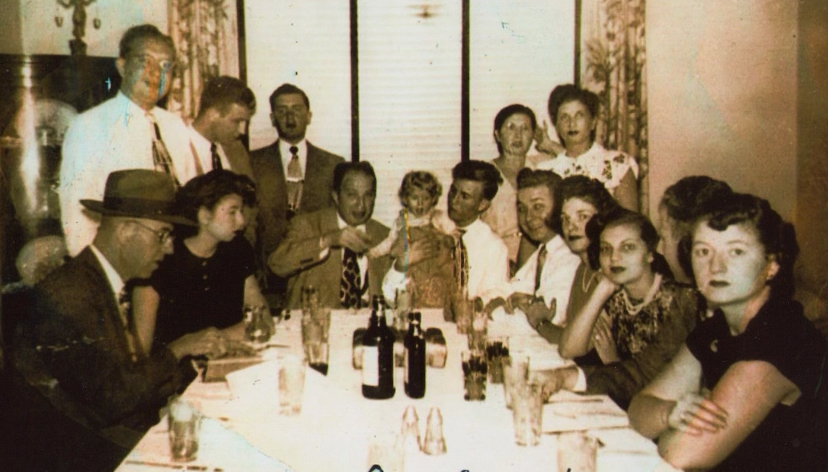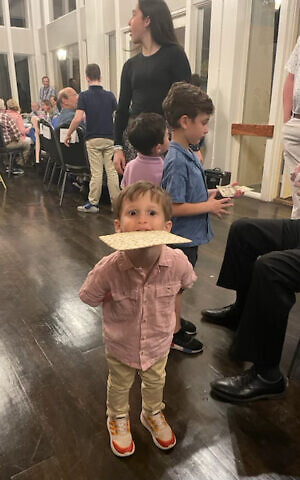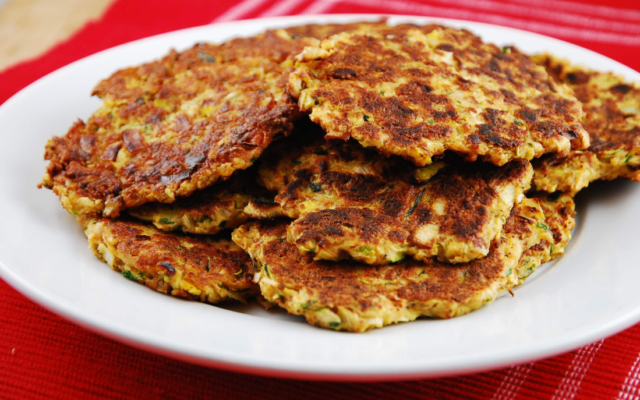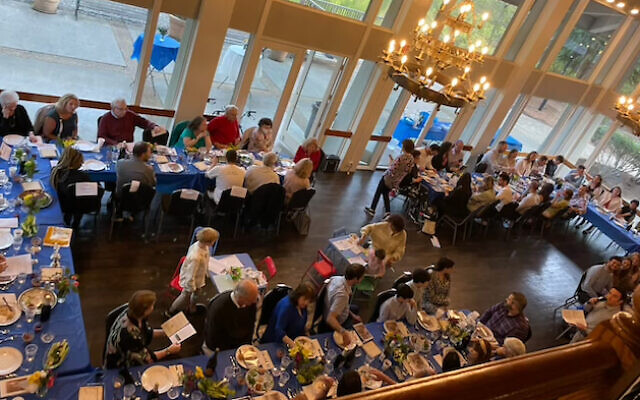Galanti Family Seder Tops 100 Guests
More than a hundred Galanti family members return to Atlanta each Passover to celebrate together.
When the Galanti family sits down for their dinner on the first night of Passover, it won’t be in the dining room of anyone’s home. The family, which traces its roots back through more than 10 decades of Atlanta Jewish history, long ago outgrew a domestic setting. This year, as they have for at least the last two decades, the outsized family will have their seder in a rented clubhouse near the banks of the Chattahoochee in North Atlanta.
Having everyone in the family come together at least once a year, no matter where in the country they live, was a tradition started by Lisa Galanti’s grandparents, Rabeno and Louisa Galanti, who came from Turkey in the early 1920s to raise a family of five boys and a girl. Lisa Galanti was part of a second generation of the original descendants.
“We were blessed that all five of their children remained in Atlanta,” Galanti said, “and pretty much lived within miles of each other. They each had three children so there were 15 first cousins. That’s how these gatherings started. It was just tradition that we got together, and we’ve been doing it ever since.”

Everything about the seder, except for the brisket and chicken that are main dish items, is prepared by family members. The work has evolved into two teams of cousins, each numbering about seven or eight, who take responsibility for organizing the seder meal and the religious ritual.
The family has its own traditional Haggadah, with the four questions in Ladino, the Spanish-based language of Jews who fled Spain during the Inquisition in the 15th century and settled in the eastern Mediterranean and North Africa.
The bountiful harvests of the warm climate of the region produced a rich cuisine that is particularly strong on seasoned rice dishes that follow the Sephardic tradition and roasted and fried vegetables. On the Galantis’ table, there are special places reserved for the squash and leek dishes, or prasa, as they’re known in Ladino.

Leek cuisine is popular in Turkey, where Sephardic Jews were a part of the national cultural fabric. Because of that close connection, early Jewish immigrants to Atlanta, before for World War I, were often called “Turkinos.”
But after the war, in which Turkey was allied with Germany against Britain, France and the United States, they preferred to call themselves Sephardic.
A favorite dish, which is often served at festive occasions is quahado, a kind of Sephardic vegetable kugel, made with spinach. It has a soft texture, with a crusty outside. For hundreds of years, it has been a signature dish of Jews who trace their history back to medieval Spain. It’s served year-round, either as a vegetarian dish or with meat. At Congregation Or VeShalom, the historic Sephardic synagogue that was founded in 1914, quahado is on the menu at the synagogue’s highly successful Chanukah bazaar.
But food is only part of the appeal that brings the Galantis’ together in Atlanta, no matter where they live the rest of the year. This Passover, family members will travel from the northeast and northwest corners of America, as well as Florida, Texas, and Louisiana. Lisa Galanti believes that all the work the family puts into their yearly gathering is worth the effort.
“It’s a labor of love. And it’s really a labor of ensuring that our children and grandchildren stay connected, stay rooted in the importance of family and tradition.”

Keftes de Prasa — Passover Sephardic Leek Patties
Ingredients:
2 medium size leeks (about a pound) well cleaned
2 large eggs
1/2 cup matzo meal
fine sea salt and black pepper to taste
1/2 cup olive oil for shallow frying
Directions:
Halve the leeks lengthwise then thinly slice the white parts.
Place the chopped leeks in a medium saucepan, add water to 3/4 up the height of the leeks and bring to a boil.
Cook over medium-high heat 40-60 minutes, stirring occasionally, until all the water has evaporated, and the leeks are very tender. The leeks should be dry.
Combine cooked leeks with the eggs, matzo meal and salt to season.
Heat the olive oil in a wide skillet over medium-high heat. Shape a large, heaped tablespoon of the mixture and form a small thick round patty shape.
Fry patties 2-3 minutes on each side until brown. Don’t crowd the skillet.
Serve hot with tahini or tomato sauce, if desired.




comments